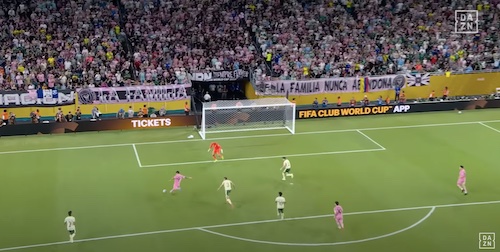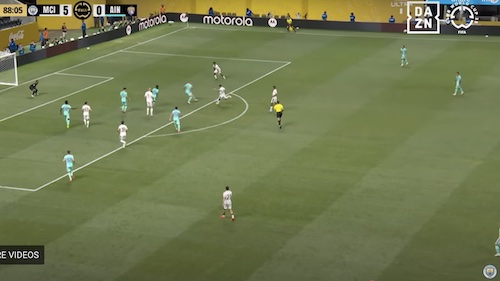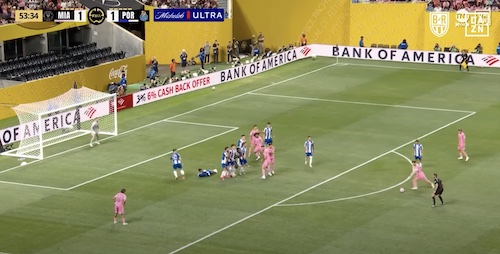By Jeff Kassouf
In what has been a particularly quiet January transfer window, the biggest news is actually a deal that did not go through. Manchester City’s $150 million bid for AC Milan’s Brazilian maestro Kaka is officially dead, killing what would have been a world-record transfer fee at a time when other teams are struggling for money.
It has just been that slow of a transfer market this time around, and it has a lot to do with the dire state of the world economy. It is no secret that the world’s economy is struggling. The multi-billion dollar bailouts, the oil crisis in the Middle East: it all adds up to troubling times.
However, the demand for sports – at least well established sports, such as the N.F.L. or the top level of European soccer – has proven to be inelastic in recent times. More or less, people will still show up for their beloved teams.
This time though, the worldwide recession is feared to be the worst in decades, and there are arguments that it is already a depression. Either way, people have much tighter grips on their wallets and the same is true for owners of big clubs in Europe.
There have not been any major moves of players being tempted by insane amounts of money, and outside of Manchester City’s pursuit of Kaka, there have not even been any talks of big name, big money transfers. It seems that the market is actually beginning to dictate to the clubs instead of the opposite, and it is about time.
On Fox Soccer Channel’s live report from the N.S.C.A.A. Convention last week, Francisco Marcos, the president of the United Soccer Leagues, boldly stated in response to Manchester City’s bid that perhaps the best thing that could happen is that a major club fold due to financial circumstances. As sad as it would be, it might teach everyone a lesson, he said.
While that might be extreme, there will come a point when enough is enough. It can happen in an ugly way such as the one mentioned by Marcos, or teams and leagues can come to a realization that they simply cannot go on demanding more money from fans.
Manchester United has come under particular criticism due to its sky-rocketing ticket prices, and it is not the only team feeling the pain of the current economy. Many English Premier League teams have seen a drop in attendance and are being forced to adjust ticket prices accordingly.
A study by Virgin Money shows that 24 percent of the 3,000 fans surveyed are considering giving up their season tickets to their E.P.L. teams because of cost constraints. As bad as that may be, it is about time that the consumers of the product of sport prove that they do have a breaking point.
For many of these blue-collar teams, fans do not always even have the money to buy tickets to the game, but they do it anyway for the love of their team. In order to pay players these ludicrous amounts of money, the fans must suffer by paying more for tickets, concessions, and gear.
It is sickening that they are being forced to take even more money out of their five-digit annual salaries to help pay their teams players upward of triple that amount just for one week. It is time that fans take a stand against these prices, and they must do so with the help of governing bodies, such as F.I.F.A. and league presidents.
Fulham owner Mohamed Al-Fayed recently proposed that a salary cap be instituted. Hopefully, the powers that be seriously look into this idea. Look at the National Football League: It is easily the most successful sports league in the United States, and it is a major player internationally. Like other American sports leagues, it has a salary cap and revenue sharing that keeps everyone on a somewhat equal playing field.
Parity is not such a bad thing. It has worked wonders for fans in the N.F.L., and it can do the same in soccer (as it does in Major League Soccer, on a smaller scale). It gives hope to fans who would otherwise know that their team will never win anything because they will simply be outspent. It allows for more teams to try signing world-class players. Most importantly, it adds excitement and drama, which is the basis of sport.
The last time a team not named Chelsea, Arsenal, or Manchester United won the Premier League title was the 1994-1995 season when Blackburn Rovers pulled it off. Fourteen years later, those three are still consistently at the top of the table alongside Liverpool, composing the “Big Four.” Isn’t it time somebody else had a crack at the title?
It is not because other teams cannot develop players; it is because they simply cannot compete monetarily and hold onto these players. Look at the likes of Wayne Rooney: a world-class striker that started out at Everton and was lured away to Manchester United. On a level playing field (i.e. a salary cap system), maybe a move like that does not happen and a team like Everton legitimately finds itself in a title hunt. It is time that the FA starts putting its foot down, as it is an influential enough power to get many other leagues to follow.
Jeff Kassouf is a a freelance writer who can be reached at: jeffkassouf@yahoo.com















